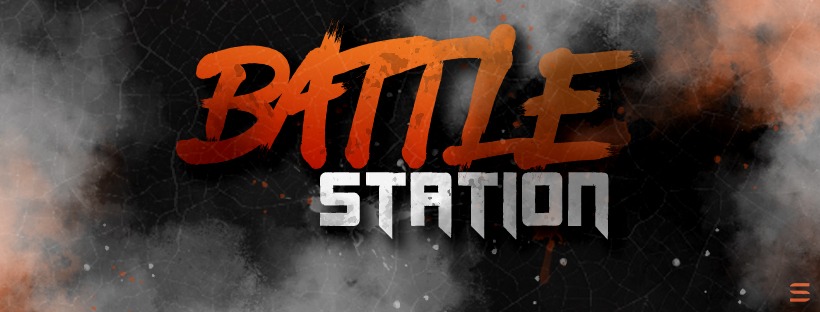Purchasing a home is a significant milestone in anyone's life. However, for most people, the dream of homeownership requires financial assistance. This is where home loans come into play. A home loan, or mortgage, is a sum of money borrowed from a bank or financial institution to buy or refinance a home. In this article, we will explore the different types of home loans, the application process, and key factors to consider before borrowing.
What is a Home Loan?
A home loan is a form of secured loan where the property being purchased or refinanced acts as collateral. The borrower agrees to repay the loan in installments over a set period of time, typically between 15 and 30 years. If the borrower fails to repay the loan, the lender has the legal right to seize the property through foreclosure.
The loan amount, interest rates, and repayment terms vary depending on the lender’s policies, the borrower’s financial status, and the type of loan chosen. Home loans are primarily used to purchase a new property, but they can also be used for refinancing existing loans or making home improvements.
Types of Home Loans
Understanding the different types of home loans is crucial to making the right decision for your needs. Here are the most common types:
1. Fixed-Rate Mortgage
A fixed-rate mortgage is the most common type of home loan. With this loan, the interest rate remains the same for the entire term of the loan, typically 15 to 30 years. This offers borrowers the stability of predictable monthly payments. Fixed-rate mortgages are ideal for individuals who prefer long-term security and want to avoid fluctuations in interest rates.
2. Adjustable-Rate Mortgage (ARM)
An adjustable-rate mortgage has an interest rate that may change periodically depending on the market conditions. Typically, these loans have a lower initial interest rate, but this rate can increase or decrease after a set period (usually 5, 7, or 10 years). While ARMs can be more affordable in the short term, they carry the risk of higher payments later on. This option might be suitable for buyers who plan to sell or refinance their home before the rate adjusts.
3. Government-Backed Loans
These are loans that are insured by the government, which helps lenders take on some of the risk of lending to borrowers with lower credit scores or smaller down payments. Some common government-backed loans include:
FHA Loans (Federal Housing Administration): These loans are ideal for first-time homebuyers with lower credit scores and a small down payment (as low as 3.5%).
VA Loans (Veterans Affairs): Available to active-duty service members, veterans, and eligible surviving spouses, VA loans typically offer competitive interest rates and require no down payment.
USDA Loans (U.S. Department of Agriculture): Aimed at buyers in rural and suburban areas, USDA loans offer low-interest rates and often do not require a down payment.
4. Interest-Only Loans
An interest-only loan allows the borrower to pay only the interest for the first few years of the loan term, with the principal balance remaining unchanged. After the interest-only period ends, the borrower begins making payments towards both the interest and principal. This type of loan can be risky if the borrower is unable to start repaying the principal, leading to significantly higher payments later.
How Do Home Loans Work?
When you apply for a home loan, the lender will assess your financial situation by looking at several key factors:
Credit Score: This three-digit number represents your creditworthiness and helps lenders decide if you’re likely to repay the loan. Higher credit scores typically result in better loan terms, including lower interest rates.
Down Payment: This is the initial amount you pay upfront toward the purchase price of the home. The larger the down payment, the less you’ll need to borrow. Typically, down payments range from 3% to 20% of the home’s purchase price.
Interest Rate: The interest rate is the cost of borrowing money, expressed as a percentage. It’s determined by various factors, including your credit score, the type of loan, and the current state of the market.
Debt-to-Income Ratio: This ratio compares your monthly debt payments to your monthly income. Lenders use this to assess whether you can afford to take on additional debt.
Once your loan application is approved, you’ll receive a loan offer outlining the amount you’re eligible to borrow, the interest rate, and the repayment terms. You’ll then proceed to closing, where you’ll sign a loan agreement and officially become the owner of the home.
Key Factors to Consider Before Applying for a Home Loan
While a home loan can help you purchase your dream home, it’s essential to carefully consider the following factors before taking the plunge:
1. Your Financial Stability
Before applying for a home loan, ensure you have a steady income and a good understanding of your monthly budget. You’ll need to manage your monthly mortgage payments, along with other homeownership expenses, such as property taxes, insurance, and maintenance costs.
2. Loan Term and Repayment Schedule
The loan term directly affects your monthly payments and the total interest you’ll pay over the life of the loan. A shorter term (e.g., 15 years) usually means higher monthly payments but less interest paid in total. On the other hand, a longer loan term (e.g., 30 years) results in lower monthly payments but more interest over time.
3. Interest Rates and Loan Costs
Research various lenders and loan options to find the most competitive interest rates and terms. Even small differences in interest rates can have a significant impact on the total cost of the loan over its term.
4. Pre-Qualification vs. Pre-Approval
Getting pre-qualified for a home loan gives you an estimate of how much you can borrow, while pre-approval provides a more accurate figure after a detailed financial review. Pre-approval can make you a more attractive buyer and increase your chances of securing the home you want.
Conclusion
A home loan can be a powerful tool in achieving homeownership, but it’s important to fully understand your options and financial responsibilities before committing. From fixed-rate mortgages to government-backed loans, there are numerous choices to suit different needs and circumstances. By carefully assessing your finances, comparing loan options, and preparing for the long-term commitment, you’ll be better positioned to secure a loan that aligns with your homeownership goals.
A Complete Guide to Understanding Home Loans: Everything You Need to Know
-
jojikeneeee
- Battle Homie

- Beiträge: 1049
- Registriert: 26.12.2023, 18:17
Kostenloses Ebook im Battle-Station Newsletter! Der BS newsletter verschickt nicht nur News sondern direkt mein 9,99€ Buch als PDF gratis dazu. Dort geht es um Mixing und Mastering. Ich versende auch kostenfrei Recording, Mixing und Mastering-Tipps. melde dich jetzt gratis an und erhalte noch heute einen Gutschein für den neuen Premium-Bereich als Geschenk! Jetzt klicken
-
jojikeneeee
- Battle Homie

- Beiträge: 1049
- Registriert: 26.12.2023, 18:17
Re: A Complete Guide to Understanding Home Loans: Everything You Need to Know
Daemul Casino has built a strong reputation in the industry for its commitment to player safety and fair gaming. One of the key features of this platform is its fraud verification system, which ensures safe and smooth transactions for all players. 대물카지노 주소
-
jojikeneeee
- Battle Homie

- Beiträge: 1049
- Registriert: 26.12.2023, 18:17
Re: A Complete Guide to Understanding Home Loans: Everything You Need to Know
Need to exit your timeshare? Timeshare Exit offers expert solutions tailored to help you break free from unwanted timeshare contracts. Timeshare exit
Wer ist online?
Mitglieder in diesem Forum: 0 Mitglieder und 12 Gäste

